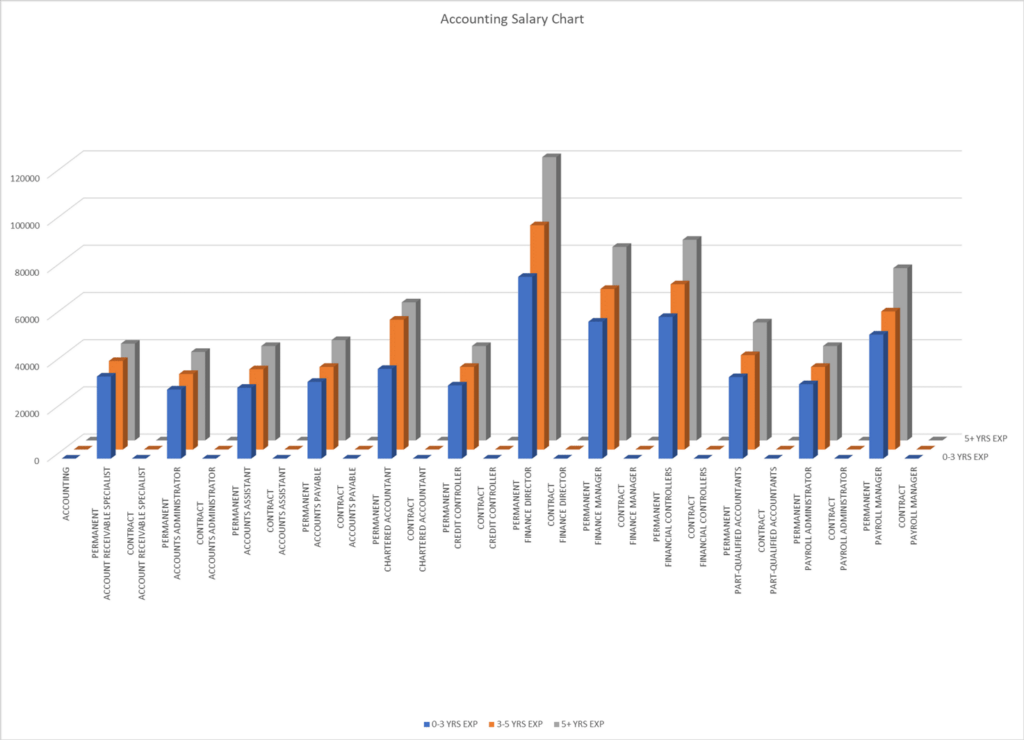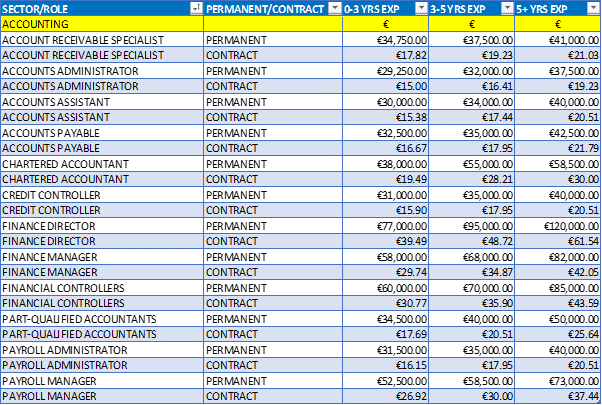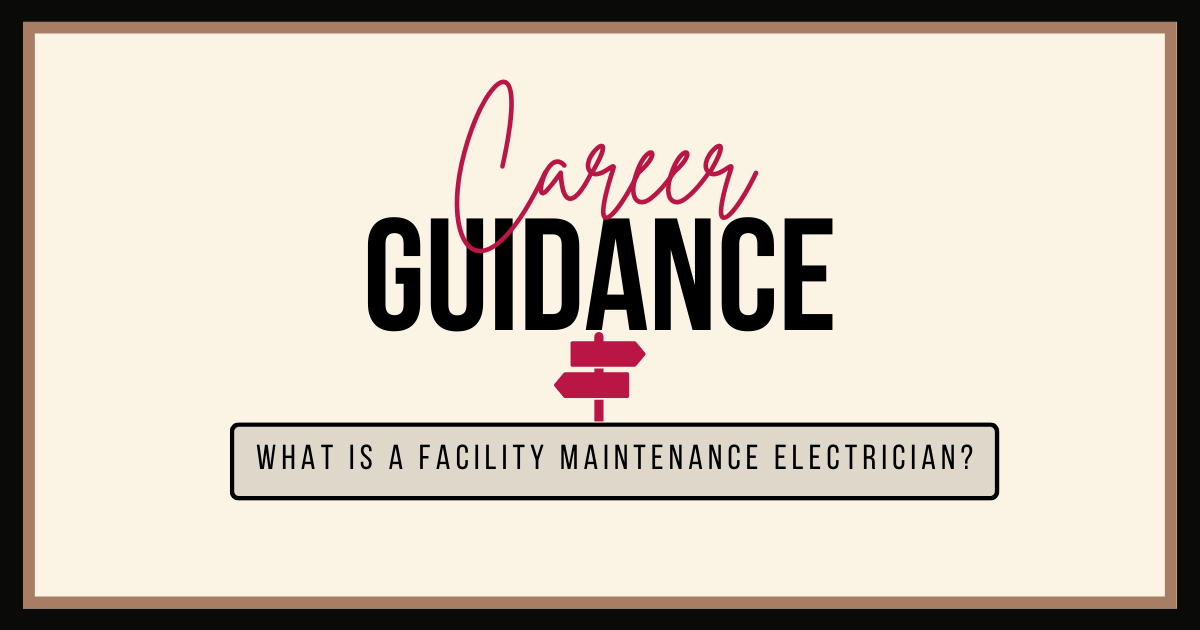
Salary Information for Accounting and Finance Roles in Ireland
The accounting and finance sector in Ireland offers a range of opportunities for professionals at different stages of their careers. In this post, we’ll look at the average salaries for permanent and contract roles in the sector, based our surveyed candidates and clients.
Starting with the entry-level positions, a starting salary for accountants in ireland as an Accounts Assistant, you can expect to earn €30,000 per annum with 0-3 years of experience in a permanent role, and €15.38 per hour as a contract worker. As experience grows, so does the salary, with 3-5 years of experience bringing a permanent salary of €34,000, and 5+ years of experience earning €40,000.
For those in Payroll management, a permanent Payroll Manager with 0-3 years of experience can expect to earn €52,500, with a contract salary of €26.92 per hour. As experience increases, the salary increases to €73,000 for those with 5+ years of experience.
Accounts Administrators and Payroll Administrators follow a similar trend, with permanent salaries ranging from €29,250 to €40,000 based on years of experience, and contract salaries ranging from €15.00 to €20.51 per hour.
In Accounts Payable and Accounts Receivable, a permanent role with 0-3 years of experience can earn €32,500 and €34,750 respectively, with corresponding contract salaries of €16.67 and €17.82 per hour.
For those in Credit Control, a permanent role with 0-3 years of experience earns €31,000, with a contract salary of €15.90 per hour. As experience grows, salaries can reach up to €40,000 for those with 5+ years of experience.
Part-Qualified Accountants can earn €34,500 in a permanent role with 0-3 years of experience, and €17.69 per hour as a contract worker. With experience, a permanent salary can reach up to €50,000 for those with 5+ years of experience.
Financial Controllers and Finance Managers have similarly increased salaries, with Financial Controllers earning up to €85,000 in a permanent role with 5+ years of experience, and up to €43.59 per hour as a contract worker. Finance Managers can earn up to €82,000 in a permanent role and up to €42.05 per hour as a contract worker.
For those with a Chartered Accountant designation, a permanent salary can start at €38,000 with 0-3 years of experience and increase up to €58,500 with 5+ years of experience. Contract salaries range from €19.49 to €30.00 per hour.
Finally at the highest level, a Finance Director can earn up to €120,000 in a permanent role with 5+ years of experience, and up to €61.54 per hour as a contract worker.
Table:

Conclusion:
In conclusion, the accounting and finance sector in Ireland offers a range of opportunities for professionals at different stages of their careers, with salaries increasing with experience. Whether you’re starting out in the sector or looking to advance your career, it’s important to understand the market rates for your role.
Looking for a new career opportunity? Check out our latest jobs here.
Or alternatively sign up to our newsletter below and get notifed about the latest positions directly.




















